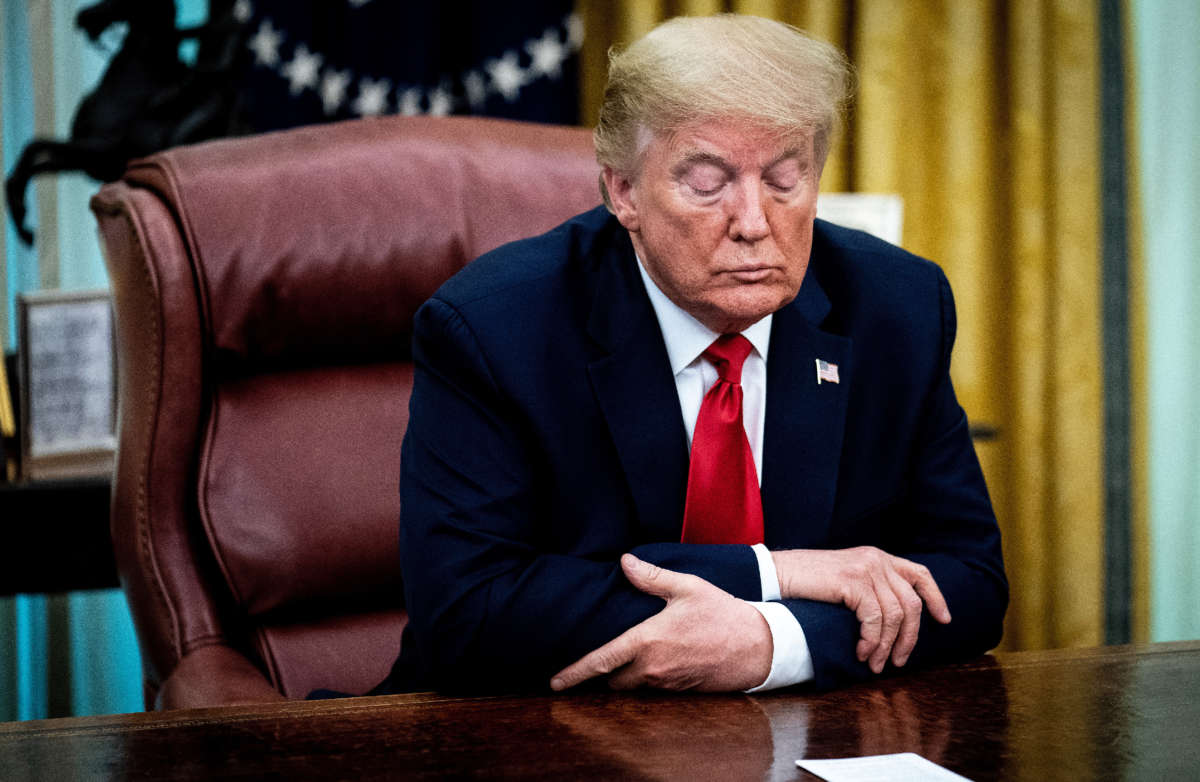Truthout is an indispensable resource for activists, movement leaders and workers everywhere. Please make this work possible with a quick donation.
The House Oversight Committee is expanding its investigation into former President Donald Trump’s handling of classified material, requesting that the National Archives hand over more information relating to Trump’s improper transfer of documents from the White House to his Mar-a-Lago estate following his exit from office.
In a letter to the National Archivist, House Oversight Committee chair Rep. Carolyn Maloney (D-New York) noted that the agency had recently removed 15 boxes that were taken to Mar-a-Lago in violation of federal law, and that it had requested that the Department of Justice (DOJ) look into the matter. Some of the material included classified information.
“The American people deserve to know the extent of what former President Trump did to hide and destroy federal records and make sure these abuses do not happen again,” Maloney said in a statement.
Although the National Archives confirmed last week that it had found classified documents within Trump’s private residence, the agency gave few details on what was included. Maloney is asking for more information on those documents.
The mishandling of records has revived debate on Trump’s handling of documents during his time in office — including his ripping of papers, which aides had to tape back together in order to comply with the Presidential Records Act.
“The Oversight Committee is seeking additional documents about former President Donald Trump’s removal of classified documents and presidential records from the White House, President Trump’s attempt to destroy records by tearing them into pieces, and other presidential records from the Trump Administration that are missing,” Maloney wrote in her letter to the archivist.
Information previously given to the committee from the National Archives, Maloney added, “suggests that former President Trump and his senior aides may have repeatedly violated the Presidential Records Act and other federal laws, which could severely impact the preservation of records from the Trump Administration.”
Referring to other reports that journalists have unveiled in recent weeks, the committee said that it is also seeking information on how Trump may have destroyed documents — including by flushing them down toilets in the White House.
The committee is seeking any and all communications relating to “White House employees or contractors finding paper in a toilet in the White House, including the White House residence,” the letter stated.
Experts say that the Presidential Records Act has limited enforcement mechanisms when it comes to former presidents. While the penalty for violating the law could result in huge fines or even prison time, for presidents the statute acts more like a “gentleman’s agreement” than anything else.
Polling on the issue seems to indicate that Trump’s mishandling of records is something that concerns most Americans. According to an Economist/YouGov survey published earlier this week, 55 percent of voters approve of the National Archives’s request that the DOJ look into Trump’s hiding and destruction of documents. Two-thirds of respondents (67 percent) said they viewed Trump taking classified documents to Mar-a-Lago as a “serious” action.
Holding Trump accountable for his illegal war on Iran
The devastating American and Israeli attacks have killed hundreds of Iranians, and the death toll continues to rise.
As independent media, what we do next matters a lot. It’s up to us to report the truth, demand accountability, and reckon with the consequences of U.S. militarism at this cataclysmic historical moment.
Trump may be an authoritarian, but he is not entirely invulnerable, nor are the elected officials who have given him pass after pass. We cannot let him believe for a second longer that he can get away with something this wildly illegal or recklessly dangerous without accountability.
We ask for your support as we carry out our media resistance to unchecked militarism. Please make a tax-deductible one-time or monthly donation to Truthout.
